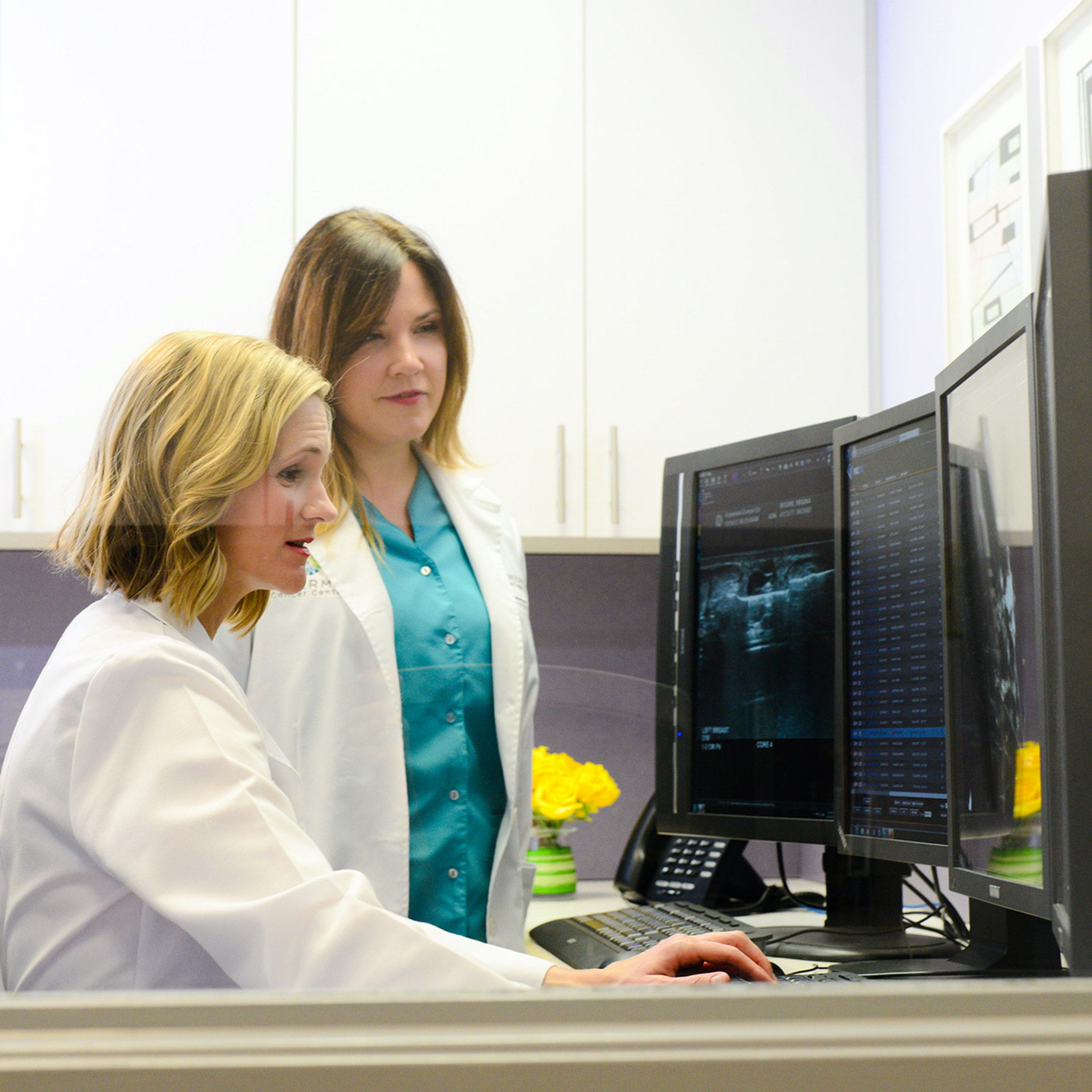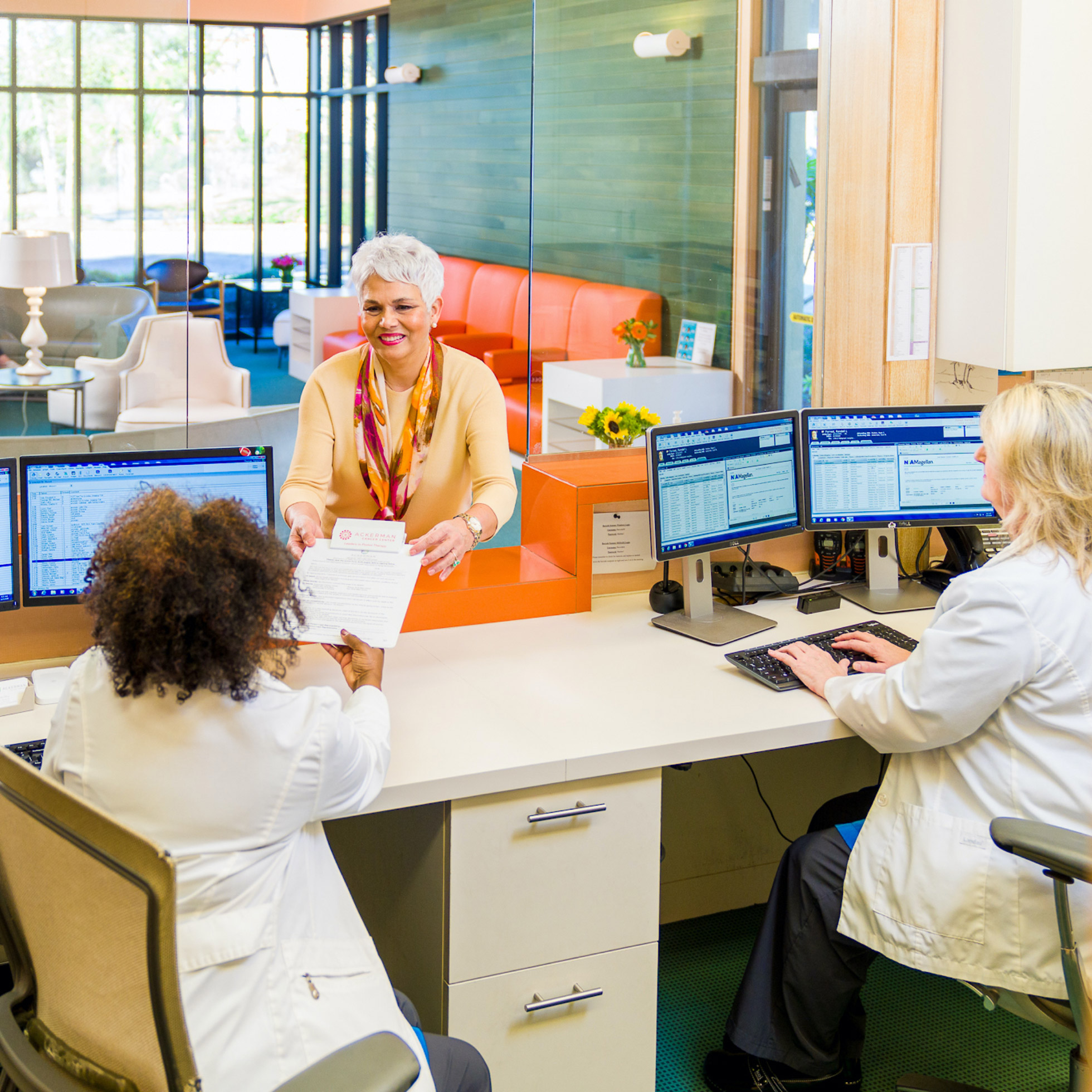Breast Cancer Screening and Care

What is a Screening Mammogram?
Breast cancer is common, affecting one in eight women. An estimated 85% of breast cancers occur in women who have no family history of breast cancer. Finding breast cancer at the earliest possible stage greatly increases your chances for a complete cure.
Breast cancer is often asymptomatic and undetectable on a physical exam until the cancer is advanced. Screening mammography is an essential test to detect breast cancer before symptoms arise. Breast cancer deaths decrease by 40% in women who receive a yearly screening mammogram, compared to women who do not. We recommend that all women at average lifetime risk for breast cancer to receive a yearly screening mammogram, beginning at age 40. Women with high lifetime risk for breast cancer benefit from yearly screening mammograms beginning at age 30.
Digital Mammogram – The gold standard, first-choice test for early breast cancer detection is the digital mammogram. This exam takes images of both breasts from different angles.
3D Digital Mammogram – Digital Breast Tomosynthesis
3D mammography is a powerful technique that improves the capabilities of the traditional digital mammogram for the detection of early breast cancer. 3D mammograms are performed with the classic 2D mammogram procedure; the 2D and 3D mammograms feel identical, except that during the 3D mammogram, the machine moves in a shallow arc. The 3D mammogram provides images of the breasts in slices as thin as 1 mm. Our radiation oncologists use these thin-slice pictures to examine the breast tissues layer by layer.
3D mammography has been shown to improve detection of invasive cancers when used in conjunction with standard mammography. A 3D mammogram can also clarify areas in question on the traditional mammogram, decreasing the chances that you will be recalled from your screening mammogram for a diagnostic breast imaging exam.

